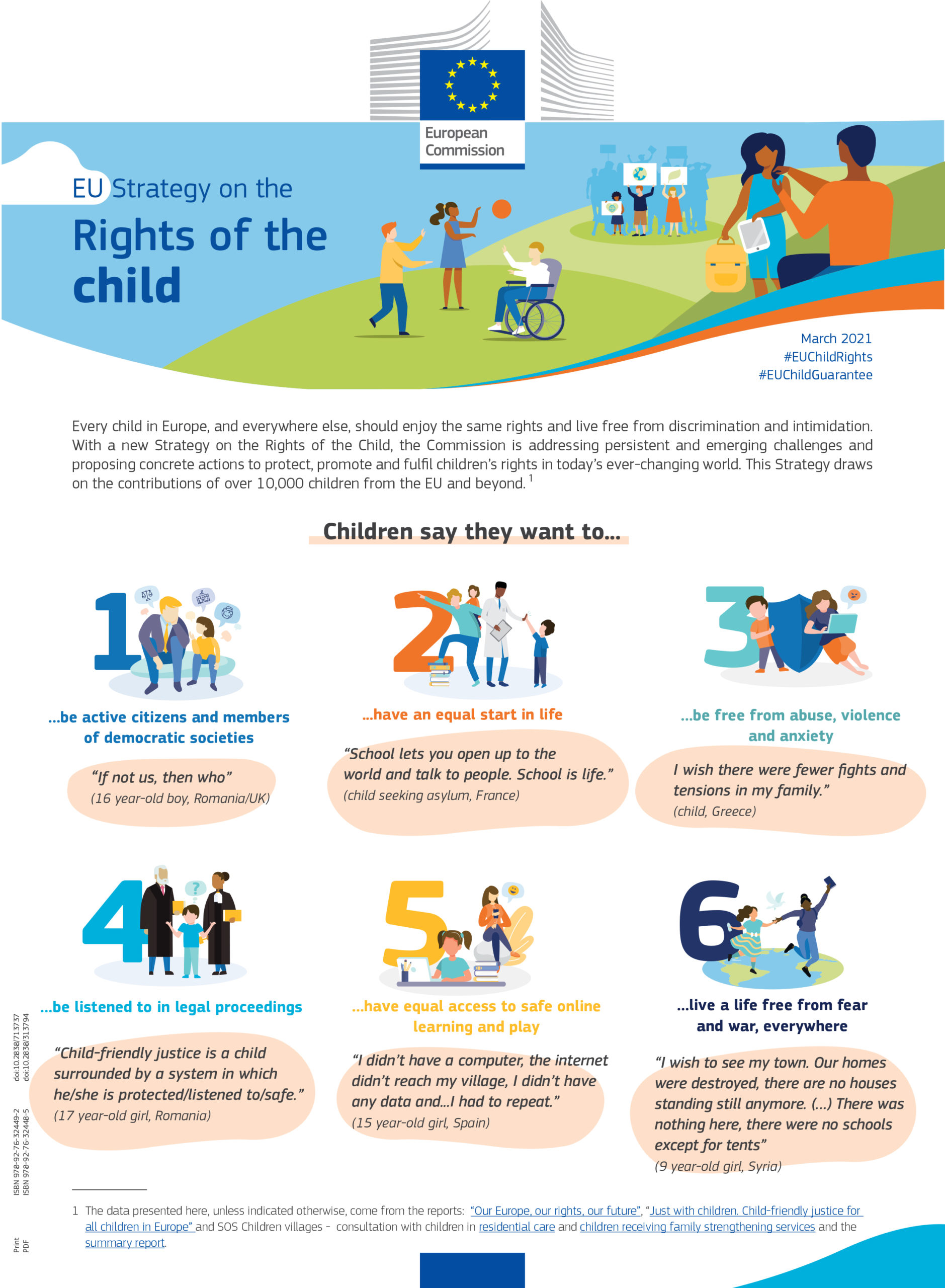
Released on March 2021, the first comprehensive EU Strategy on the Rights of the Child was adopted by the European Commission to promote equal opportunities for children at risk of poverty or social exclusion.
Every child in Europe, and everywhere else, should enjoy the same rights and live free from discrimination and intimidation. With this new Strategy, the EU Commission is addressing persistent and emerging challenges and proposing concrete actions to protect, promote and fulfil children’s rights in today’s ever-changing world. This Strategy draws on the contributions of over 100,000 children from the EU and aborad.
Six thematic areas and proposed action
- Children as agents of change in democratic life: The Commission is proposing a range of actions – from producing child-friendly legal texts to holding consultations with children in the context of the Conference on the Future of Europe and the implementation of the Climate Pact and Green Deal. Member States should also enable the participation of children in civic and democratic life.
- The right of children to realise their full potential no matter their social background: The Commission is seeking to establish a European Child Guarantee to combat child poverty and social exclusion. The Commission will also for example, address children’s mental health and help support healthy and sustainable food in EU schools. The Commission will strive for better EU-wide early education and care standards and build inclusive, quality education.
- The right of children to be free from violence: The Commission will propose legislation to combat gender-based and domestic violence and table recommendations to prevent harmful practices against women and girls. Member States are invited to build integrated child protection systems and improve their functioning, as well as to strengthen response to violence in schools, and to adopt national legislation to put an end to corporal punishment in all settings.
- The right of children to child-friendly justice, as victims, witnesses, suspects, accused of having committed a crime, or party to any legal proceeding. The Commission will, for example, contribute to specialised judicial training and work with the Council of Europe to implement the 2010 Guidelines on Child Friendly Justice, Member States are invited to support training for example, and to develop robust alternatives to judicial action such as alternatives to detention or mediation in civil cases.
- The right of children to safely navigate the digital environment and harness its opportunities: The Commission will update the European Strategy for a Better Internet for Children and the proposed Digital Services Act aims to provide a safe online experience. The Commission is calling on Member States to effectively implement the rules on protection of children contained in the revised Audiovisual Media Services Directive and to support the development of children’s basic digital skills. The Commission also urges ICT companies to address harmful behaviour online and remove illegal content.
- The rights of children across the globe: Children’s rights are universal and the EU reinforces its commitment to protect, promote and fulfil these rights globally and in the multilateral sphere. This will be achieved for example by allocating 10% of humanitarian aid funding for education in emergencies and protracted crises. The Commission will prepare a Youth Action Plan by 2022 to promote youth and child participation globally, and to strengthen child protection capacities within EU Delegations. The Commission also maintains a zero tolerance policy on child labour.